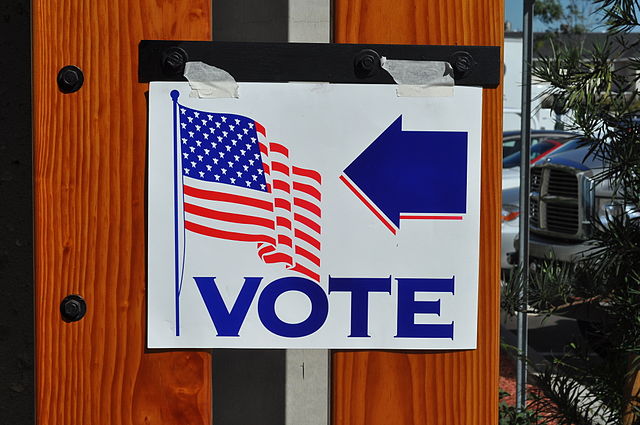
- Details
- By Denise Juneau
Guest Opinion Growing up in Montana on the Blackfeet Indian Reservation, I learned firsthand the importance of voting through my parents, who never missed an Election Day and even ran voter registration drives for our community. My parents always said that there were two non-negotiables in our family: “You go to school and you vote.”
When I turned 18, I was honored to cast my ballot alongside my parents for the first time. At that moment, I knew they were so proud of all the work they had done to help our neighbors vote.
I also was struck by the obstacles to voting that are present for Native communities that make voting more difficult - or in some cases, almost impossible. In my first experience voting, I faced individuals who stood outside the polling place to intimidate voters and spread false statements about voting. I was fortunate to have had parents who taught me my rights around voting, but not everyone is that lucky.
Native communities are sometimes located hundreds of miles away from their closest election office. This means that people living on reservations have to take a costly trip and time off from work to cast their ballot. That is simply not an option for some families.
Many Native families also do not have traditional street addresses and often share P.O. boxes. The Native American Rights Fund gives an example of what one of these addresses looks like, “the house located on the right side of BIA-41 between highway marker 17 and highway marker 18.” You can see how this makes mail-in ballots or voter registration applications harder to locate.
These nontraditional street addresses can also lead to election offices rejecting these ballots. Mail-in voting, while incredibly important, is unfortunately made more difficult by the remote location of many reservations and poor road conditions, causing unreliable or delayed mail delivery.
And of course, there is a long history of voter suppression for Native communities. While the vote was officially given to Native Communities in 1924 through the Indian Citizenship Act, many states continued to block access to the ballot box for Native Americans until the passage of the Voting Rights Act in 1965.
As a country, we must tackle these historical, systemic, and logistical barriers to voting for Native communities. That’s why I decided to join the Voter Participation Center (VPC) as their Board Chair this past year.
At VPC, we are working tirelessly to ensure that those that have historically been underrepresented in democracy - like American Indians - can access the ballot box. We connect with millions of voters a year through voter registration, mobilization, and education.
VPC is committed to improving our direct mail and digital programs to best reach Native communities. For example, we will be mailing voter registration applications directly to P.O. boxes in key locations in an effort to reach more Native families.
But there also needs to be action on the federal level. Congress should immediately pass the bipartisan Native American Voting Rights Act, which would allow Tribes to specify the number and locations of requested voter registration sites, drop boxes, and polling locations on Tribal lands, while authorizing Tribal ID cards for voting purposes and empowering states to establish Native American voting task forces.
I also encourage my Native brothers and sisters to get involved in public service. My mom was the first American Indian woman to serve in the Montana state legislature, and she always fought for Native voting rights and showed us why it’s important to have native voices present at the table. Our perspectives matter. Our representation matters.
There is a long way to go to ensure equal access to the ballot box for Native people. But by working together, I believe we can create a democracy that truly looks like all of us.
Denise Juneau is the board chair for the Voter Participation Center. Juneau is the first Native woman elected to serve as Superintendent of Public Instruction for the State of Montana, the first Native superintendent in Seattle, and the first “out” LGBTQIA federal candidate in Montana
Help us defend tribal sovereignty.
At Native News Online, our mission is rooted in telling the stories that strengthen sovereignty and uplift Indigenous voices — not just at year’s end, but every single day.
Because of your generosity last year, we were able to keep our reporters on the ground in tribal communities, at national gatherings and in the halls of Congress — covering the issues that matter most to Indian Country: sovereignty, culture, education, health and economic opportunity.
That support sustained us through a tough year in 2025. Now, as we look to the year ahead, we need your help right now to ensure warrior journalism remains strong — reporting that defends tribal sovereignty, amplifies Native truth, and holds power accountable.
 The stakes couldn't be higher. Your support keeps Native voices heard, Native stories told and Native sovereignty defended.
The stakes couldn't be higher. Your support keeps Native voices heard, Native stories told and Native sovereignty defended.
Stand with Warrior Journalism today.
Levi Rickert (Potawatomi), Editor & Publisher

